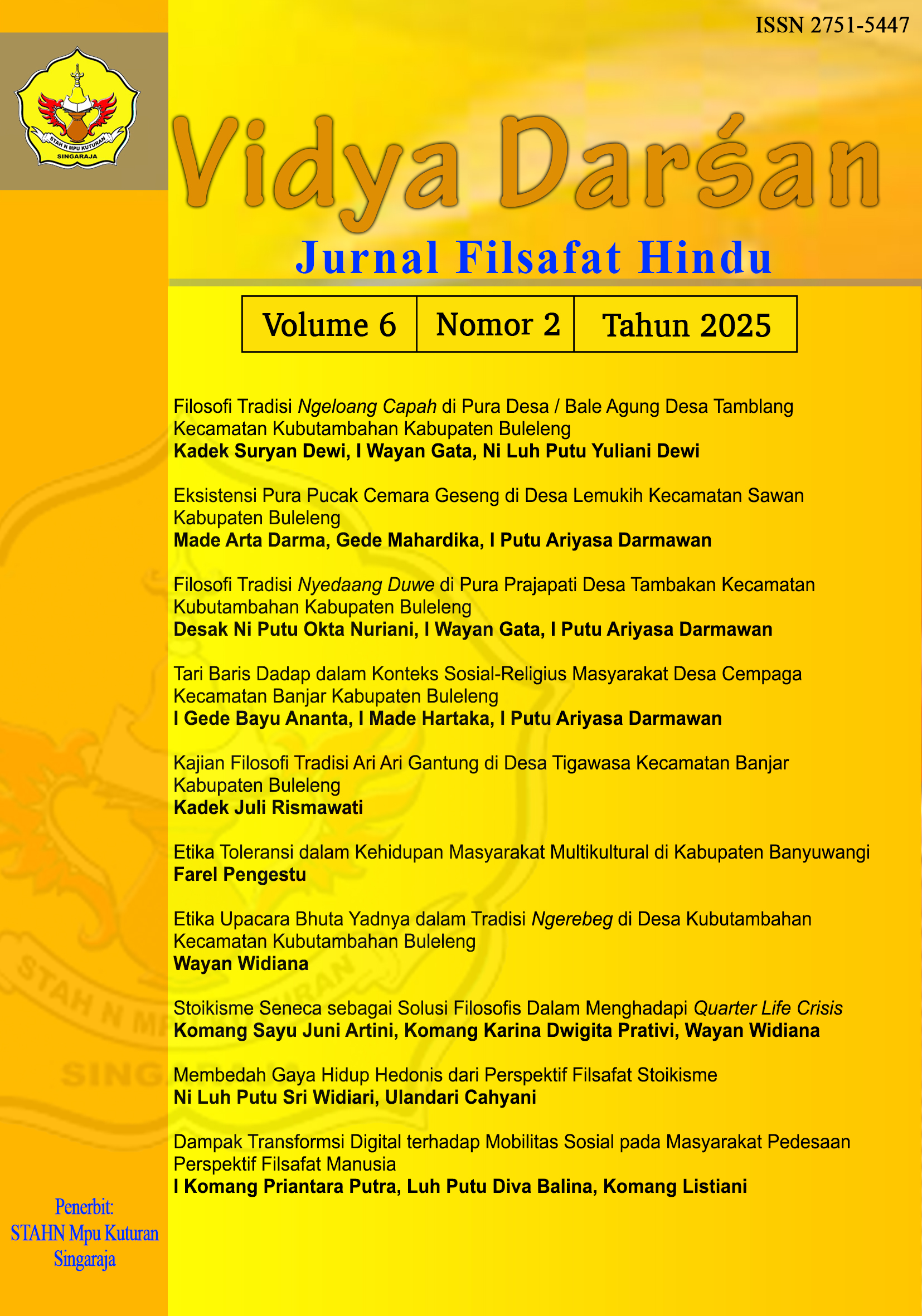FILOSOFI TRADISI NYEDAANG DUWE DI PURA PRAJAPATI DESA TAMBAKAN KECAMATAN KUBUTAMBAHAN KABUPATEN BULELENG
Keywords:
philosophy, nyedaang duwe traditionAbstract
Nyedaang Duwe tradition is a tradition that is carried out from generation to generation that
reflects a community belief and its implementation coincides with the Kasa Full Moon every
two years. The purpose of this study is to reveal the basis of the Nyedaang Duwe tradition
along with the philosophical values contained therein. This study uses a qualitative approach
with interview, observation and documentation methods conducted in Tambakan Village. The
results of the study indicate that the Nyedaang Duwe tradition is an important part of the lives
of the Tambakan Village community, the sacredness of this tradition is due to the myths that
develop in the community and the strong beliefs of the Tambakan Village community. In its
implementation, the media used is the duwe cow which is sacred with the yajña ceremony. The
essence of the Nyedaang Duwe tradition can be seen from the value of harmony reflected in
the Tri Hita Karana teachings, harmony between humans and God as a manifestation of
spirituality, harmony between humans and others such as the establishment of togetherness
and good communication between one another and harmony with the environment in the form
of environmental conservation carried out by the community. The value of preserving culture
is also one of the things that the people of Tambakan Village can do by continuing to carry out
traditions sustainably.

